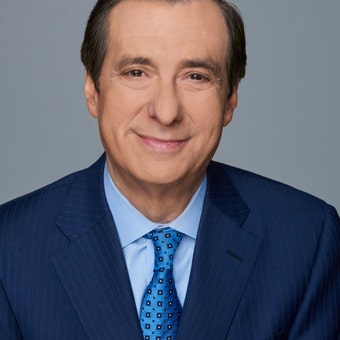Donald Trump was right about one thing: He was a huge moneymaker for the media.
And now they are scrambling to hold onto a shrinking audience.
Media outlets are not exactly going under, as Trump liked to predict would be their fate once he left. It’s more like a return to what used to be deemed normal, before the symbiotic relationship that boosted his political fortunes and their bottom lines.
And that presents a stiff challenge, now that their world is no longer dominated by the politics of personality, divisive culture wars and endless Twitter spats.
President Biden draws his share of ideological opposition, but his effort to dial down the temperature, avoid personal attacks and barely engage with the press puts the focus squarely on policy debates, which many people find a snooze.
Of course, Trump alone didn’t produce the sky-high ratings and clicks of 2020 and early 2021. There was a global pandemic and an economic lockdown that riveted the attention of Americans. There were waves of racial protests that sometimes turned into riots. There was a hotly contested presidential election. There was an armed insurrection at the Capitol. And, as bookmarks for Trump’s tumultuous tenure, there were two impeachment trials in the space of 13 months.
There was always the inescapable irony that the president who denounced "fake news" from the "enemy of the people" was also the best at ringing their cash registers. The media thrive on crisis and controversy, from his days as a tabloid figure in New York, knew how to supply both on an hourly basis.
DUELING NARRATIVES: BIDEN'S PANDEMIC PROGRESS COULD BE OVERSHADOWED BY BORDER CRISIS
At the Washington Post, for instance, the number of online visitors fell 26 percent from January to February—and that’s according to the Post. The New York Times site lost 17 percent during that period.
As for cable news:
"The most deeply affected network is CNN. After surpassing rivals Fox News and MSNBC in January, the network has lost 45 percent of its prime-time audience in the past five weeks, according to Nielsen Media Research. MSNBC’s audience has dropped 26 percent in the same period." Fox News "has essentially regained its leading position by standing still; its ratings have fallen just 6 percent since the first weeks of the year." (This was after an initial Fox drop prompted lots of doom-and-gloom headlines about the network’s prospects in the Biden era.)
Now some gains have already been pocketed. The Trump presidency saw the number of Times digital subscriptions soar from 3 million to 7.5 million; the Post tripled such subscribers to 3 million. But these are national outlets, and regional newspapers didn’t join in the boom.
The Trump void, if we can call it that, helps explain why there was so much media attention around the world to an interview I did on Sunday. Senior adviser Jason Miller told me on "Media Buzz" that the former president will be back on social media in two to three months with a new platform to emerge from his meetings with various companies.
Whether that materializes, or crashes and burns, remains to be seen; it isn’t easy challenging the likes of Twitter and Facebook from scratch. But while such an app or outlet would be a magnet for conservatives, journalists would also sign up en masse to follow any Trumpian news.
The 45th president just confirmed a scoop I had weeks ago, that he’s enjoying being freed from the tyranny of the torrent of tweeting. His press releases are "more elegant than tweeting," he told Newsmax. (They’re also better vetted by staff.)
Trump acknowledged that "the tweeting gets you in trouble" because when you retweet people you can find out they’re "not so good." He was often criticized during his White House years for serving as a megaphone for sketchy characters and conspiracy theorists.
SUBSCRIBE TO HOWIE'S MEDIA BUZZMETER PODCAST, A RIFF OF THE DAY'S HOTTEST STORIES
You might think that with a new administration, an ongoing pandemic, widespread vaccine frustration and a crisis at the Texas border there would be plenty of news to attract eyeballs. But importance alone doesn’t translate into consumption. At the Times yesterday, the third-most popular story was Ellen DeGeneres’ plunging ratings; the fourth most clicked-on Post story was "Prince Harry takes a job at Silicon Valley Start-Up."
Media outlets clearly have some soul-searching to do now that they’ve been forced to break their Trump addiction.










































